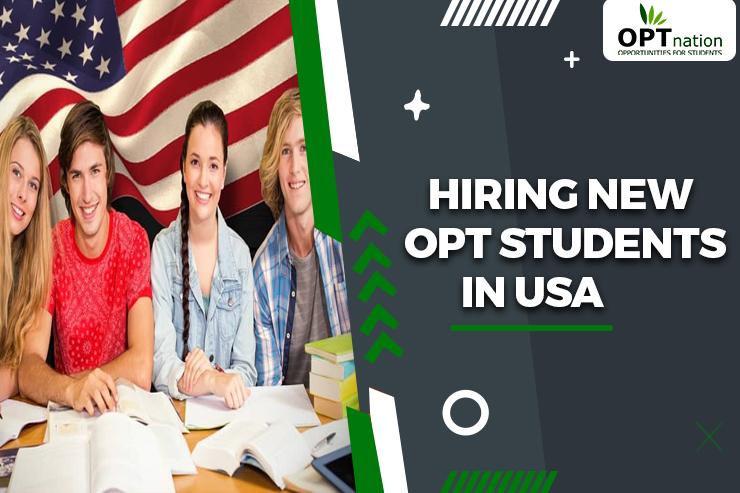Hiring New OPT students in USA
Introduction
International students diversify the workforce of the
provider, offer fresh viewpoints on business problems, and foster the
organization's capacity for creative problem-solving. These people work well as
a team because they are ambitious and daring, and they typically have language
abilities that are hard to discover in other applicants. There are a few
restrictions on hiring OPT candidates because certain guidelines must be
followed when applying for F1, J1, or M1 visas. Before bringing in overseas
students, a quick examination of student visa fundamentals will ensure that
only those who are qualified for the position are hired.
How to Hire OPT students in USA
International students can reside in the USA while
enrolled full-time in an academic or diploma program at a school, college, or
university thanks to the F1 Student Visa program. There are restrictions on the
types of occupations these persons can hold outside of the university, but they
are free to accept tasks on campus. One of the biggest restrictions is probably
a ban on working off-campus during the first year of academic studies. Candidates
may not, without exception, work for any off-campus companies during their
first year of college. Candidates with F1 visas are permitted to work
off-campus in one of the following two classes after their first year of
studies:
OPT Students Curricular Practical Training: These
positions were made possible by a collaboration between the professors, outside
companies, and students. Employers offer internships, cooperative learning
opportunities, and other practicums that are integrated into the curriculum. In
these circumstances, the Designated School Official completes Form I-20 to
attest to the student's eligibility for employment.
OPT Students' Optional Practical Training: OPT work is
directly tied to the student's academic major even though it is not included in
the curriculum. Candidates who are granted an OPT work permit are subject to
hour restrictions. They are only permitted to work 20 hours a week while school
is in session, yet they are permitted to work full-time when classes are not in
session. Unless an extension is granted, they can only work for a maximum of
twelve months.
Database of OPT resumes in USA for OPT employers
There are a few options available to employers looking
for OPT candidates. Resume databases are the most popular place to look for OPT
candidates. You can search a variety of resume databases, but one of the most
well-known is OPTnations database of OPTresume in USA. Additionally, you might try looking through particular OPT
resume databases, such as OPTnation.
Remember that OPT candidates will likely have a resume
that differs from a typical student or entry-level resume when searching
through resume databases. OPT applicants, for starters, will be far more
experienced than the typical student. On their resumes, skills, and aptitudes
will probably take precedence over schooling.
This is due to the fact that OPT Candidates are
typically more focused on finding an employer that sponsors their visa than
they are on finding any job. Make sure to seek for skills and qualifications
that meet the requirements of your firm when reviewing resumes. Additionally,
don't be hesitant to contact OPT prospects directly using the database of OPTnation
candidate resumes. Many of them are looking for work right now and would be
delighted to hear from you.
Taking Care of Taxes for Workers with Student Visas
Holders of F1 and J1 visas are often free from paying
U.S. Social Security and Medicare taxes, provided that the job is permitted by
the conditions of their visas. They are typically free from income tax
withholding as well, but a professional tax expert is the greatest source of
specific information on various circumstances. An alternative set of
instructions must be followed when filling out the W-4 form by employees on
student visas: Verify line 3's "Single" and "Married" fields.
On line 7, do not claim Exempt, withholding status. On line 6 of the Form W-4,
type Nonresident Alien, or NRA, above the dotted line.
According to federal laws, employment must end after
the authorized academic or practical training is complete. However, students on
F-1 or J-1 visas who are exempt from the two-year home residency requirement
may continue to work provided their request for a change in visa
category—typically to H-1B—is approved. To be eligible for H-1B status,
students must hold a bachelor's degree at the very least. An H-1B visa allows
for a maximum of six years of employment in the United States.Only employment
with the organization that filed the petition is permitted with this visa. If
they want to switch employers, they have to reapply to the USCIS. When the
initial OPT employment offer becomes active. If they expect to continue working
after the practical training time, they should apply for an H-1B visa.




Comments
Post a Comment